Google and Microsoft have virtually achieved their goal of becoming Apple, albeit twenty years behind today's Apple. Which is sort of a beleaguered achievement.
Reversals of Fortune
Google is riding high, with a peak stock valuation and an army of devoted fans ready to explain why none of the problems the company is facing (including its clumsy transition to mobile) are actually problems. Companies that make money never stop making money, right?
Then there's Microsoft, which has been losing its fans like a data center after a catastrophic power system failure. Ten years ago, Microsoft was 'the Google,' making money so fast and furiously that nobody could imagine its fortunes ever changing. I remember arguing this possibility with the Internet, and being told (even by Apple fans) that I shouldn't say such things if I wanted to retain any credibility. Because change never happens, right?
I didn't predict that Microsoft would completely fail at mobile and be forced to watch Apple beat it in the enterprise. I merely suggested that Apple would survive and retain a growing market of customers, because it had addressed the problems that had earlier forced it into decline and was now executing successfully as a profitable company building products that customers wanted.
There's lots of evidence that Google is now following Microsoft's decline into beleaguerment, and that Microsoft still has a long way to fall before it hits the bottom, with Google right behind it. Essentially, they're wrong, here's why.
This all happened before
Twenty years ago in 1994, Apple Computer was at its most beleaguered. Things would continue to get even worse for the company over the next few years, but at least by that point the company was starting to become aware— at least internally— that there was something tragically wrong that needed to be fixed.
The Old Apple Computer was being surpassed in the graphical desktop computer market it had created a decade earlier. Its lead in developing consumer tech was slipping both in software development (where nimbler companies like Microsoft— that were less concerned about bugs— were becoming far more prolific in generating code) and in hardware manufacturing (where cheap labor at overseas factories was surpassing Apple's ability to build machines in American factories).
Apple had partnered with IBM four years earlier to collaborate on CPUs, multimedia and OS software, but those collaborations (particularly in software) had largely resulted in copying existing work that didn't need to be duplicated, ultimately building tools that nobody would ever actually use.
Despite having launched the Newton Message Pad (and developing the new ARM mobile processor to power it), Apple couldn't figure out how to make significant money from mobile devices, even as the profits from its previous cash cow (the high end desktop Macintosh) began to erode away.
The Old Apple failed so publicly that even ten years later tech pundits were largely incapable of understanding how Apple could ever possibly bounce back, just about the time that it began turning its fortunes around with iPod. It took nearly another ten years after that for Apple to regain its position in leading technology on a global level, something it had lost leading up to 1994.
Tech Rehab
Back in the beleaguered 1990s, no amount of rosy optimism expressed by fans (including "Windows 95 = Mac 89") was capable of saving the Old Apple from its trajectory. The company couldn't be turned around by mere marketing spin; it needed some serious rehab.
The old Apple had to hit bottom, shake off its operational inefficiencies, refocus on its core competency, escape from a series of toxic relationships, plot a new course and rebuild its identity with customers. And it needed to start down this long turnaround path before its losses exceeded its remaining revenues.
The fact that Apple was able to reinvent itself between 1994 and 2014 is nothing short of miraculous. There are few other companies that could claim anything comparable, while there are long lists of once important tech giants from every decade that failed to similarly turn themselves around once the market began to shift: Atari, Acorn, Commodore, Sony, Palm, BlackBerry and Nokia to name a few. Microsoft is also revealing that a significant portion of what it does is actually farmed out to non-employee vendor and temporary contractors
Microsoft is increasingly looking like a company with serious cracks opening in its facade, and within those cracks you can observe some very rotten stuff that will require very extensive surgery to remove.
One example: in addition to massive layoffs, Microsoft is also revealing that a significant portion of what it does is actually farmed out to non-employee vendor and temporary contractors, resulting in exposure of "Microsoft IP and confidential information."
Apple's calm before the storm
It's important to realize that not too long before many of these tech giants fell, they were apparently doing fine. Just like Google today, like Microsoft a few years ago, like BlackBerry in 2011, like Nokia in 2009 and like Apple two decades ago.
In 1993, Apple had been paying dividends for six years and its stock was reaching peak prices over double its original IPO, outperforming even IBM's stock over the same period. It had $5 billion in assets and brought in $2.4 billion in quarterly revenues, which were up significantly over the previous year even though its income was slipping.
Apple had all sorts of technologies planned that it had been working on for years (including Copland and Taligent), in addition to having a crack team of scientists focused on inventing new stuff in its Advanced Technology Group, just like Google's jetpack, robot and self driving car labs today.
It wasn't just vaporware; Apple had already unleashed a series of technical innovations well ahead of the rest of the PC industry, including QuickTime multimedia, HyperCard's model for the web, and advanced social, search and data presentation tools, as well as work in novel programing languages and mobile user interfaces delivered for the Newton.
In 2006, Microsoft had also been making tons of money right up until Windows Vista sputtered into the market, bookended by PlaysForSure and Windows Mobile rolling over like overfed goldfish. Like the Old Apple, Microsoft similarly had lots of people and partnered vendors working on novel concepts and ideas, just not a lot of focused oversight.
After its initial stumbles a decade ago, Microsoft has furiously (albeit ineffectually) spent billions on acquisitions and has realigned its deck chairs multiple times, revealing increasing internal problems that have as much in common with Apple's 1994 as Windows 95 had with 1984.
The biggest difference between today's Microsoft and the Beleaguered Apple Computer of two decades ago is that the Old Apple's cofounder Steve Jobs was both willing and capable of turning it around. Bill Gates doesn't appear to be either of those for Microsoft.
Instead, the company has appointed a Gil Amelio, slashing jobs and spewing verbose but largely meaningless platitudes regarding Microsoft's future strategy.
What about Google's copy of Microsoft?
While Microsoft is clearly facing troubles, a lot of analysts are still making excuses for Google, suggesting that its attempt to copy the "commodity licensing" business model of Microsoft, albeit without collecting any licensing revenue, it still a genius move because (just you wait and see).
Never mind that advertising on mobile is not working out like advertising on the desktop PC browser. Google's ad profitability is dropping with each quarter, something that analysts like to excuse because "mobile ads work differently." But a larger problem is that while the PC desktop is plateauing, Google's control over the Android mobile platform is itself slipping.
While analysts are extremely concerned about Apple's share of mobile growth, and in particular its growth in China, they are only making excuses about Google's mobile performance and completely ignoring the fact that China has built its own version of Google services.
It's only newsworthy when a Chinese company makes an off brand iPhone (that gains marketshare largely at the expense of Samsung, not Apple). When China makes off brand Google internet services that completely shut down Google's ability to make significant inroads into the vast Chinese market, well, Google didn't need China anyways!For 2013, Apple collected $171 billion (mostly from mobile) versus Google's $55.5 billion (mostly not from mobile).
Instead, analysts like to talk about copies of Google's work forked by Amazon and Chinese manufacturers as if they benefit "Android," as if Android is a religion rather than a commercial enterprise, and Google is its supernatural deity rather than a more mundane sort of creator that actually has to pay for its ongoing development.
Imagine if Apple 1994 had been valued based on the widespread proliferation of some form the "Mac desktop," even though the company wasn't making any licensing revenue from Microsoft Windows. Perhaps Apple stock wouldn't have tanked.
Or imagine if Apple today were accounted "market share" based on the ubiquitous use of WebKit, which Apple makes no licensing revenue from, rather than the sale of Apple's actual products, from which it makes more money than Google. For 2013, Apple collected $171 billion (mostly from mobile) versus Google's $55.5 billion (mostly not from mobile). Android is winning?
A tale of two Apple+IBMs
Today's Apple provides a model of tech competency, with product and user interface designs that define fashion and inspire copying; with rapid, focused software development that even companies like Volkswagen want to emulate; with retail store operations that everyone from Microsoft to Samsung copy as closely as possible and with software app markets that Amazon, Google and Microsoft have all worked to duplicate.
Twenty years ago, however, Apple was building a very different legacy. And today, Google and Microsoft are copying all the things Apple got wrong way back then.
Apple's original partnership with IBM— rather than being a simple sales and support agreement with "little overlap" like the one just announced— was a broadly ambitious plan that gave away Apple's own technical crown jewels (particularly multimedia) while mingling divergent corporate cultures and strategies, creating internal political fights over whose microkernel to use, who was in charge of the future user interface and even the underlying design of tomorrow's hardware (PReP vs CHRP).
Sound familiar? That's exactly the same kinds of problems Google is experiencing in its partnership with Samsung today, which represents the majority of Android sales and virtually all of its profits.Today, both Google and Microsoft are facing a new sort of commodity: their OSs. Both companies are now offering their software for free to any tablet makers who will use it.
Issues of which version of Android (or Tizen or maybe Chrome OS) is used and promoted, who gets to choose the UI and who benefits from it, whose apps and services get credited and actually installed have resulted in Samsung shipping mobile devices with multiple web browsers and multiple book, app and media stores while Google ships Samsung-built phones that don't even get Android updates over the buyer's two year contract. It's a mess.
Microsoft long dealt with similar issues, but it earned licensing revenues from its Windows partnerships and enforced strict rules over who could use its software. Today, both Google and Microsoft are facing a new sort of commodity: their OSs. Both companies are now offering their software for free to any tablet makers who will use it, while Apple is earning record revenues selling iPad as a finished product.
As a result, one of the leading enterprise cloud and services companies picked Apple as its mobile platform partner, not Microsoft and not Google. That's a profound reversal of fortune.
Learning vertical integration lessons from the Old Apple
Microsoft had enough competency left to have recognized (following the failure of PlaysForSure, Windows Mobile/Windows Phone, and Windows RT at the feet of iPod, iPhone and iPad) that it needed to stop what it was doing and instead begin copying Apple's finished product business model.
It found this to be far more difficult that it imagined. The Zune, KIN and Surface have all failed spectacularly for Microsoft.
Google has similarly tried in vain to copy Apple's vertical business, spending billions to acquire Motorola while accomplishing nothing but bleeding additional billions in hardware losses, then turning around to pay additional billions for Nest. Google hasn't even been moderately successful at rebranding its partners' products as Nexus devices, which were aimed at 'fixing" the user interface and bloatware bundling mistakes that Android licensees were making.
Google's Nexus strategy has worked out about as well as Apple's 1994 Mac cloning program: let us do all the design and support work but earn no money for it while eroding any ability to sell our own hardware at a profit. Genius!
Google's Android rehash of Copland, Taligent & Performa
In parallel, to cover up Android's software development failures Google keeps inventing new versions of Android that "finally solve" its laggy performance and security flaws, over and over again.
Google says Android L's ART will "finally solve" lag, but that's also what it said of 2012's Android 4.1 Project Butter, which "finally solved" lag issues that Android fans had earlier announced were "finally solved" by Android 4.0's hardware accelerated UI "just like iPhone" back in 2011. Before that, everyone was loath to even admit Android lag existed.In parallel, to cover up Android's software development failures Google keeps inventing new versions of Android that "finally solve" its laggy performance and security flaws, over and over again.
The Old Apple similarly kept repeatedly patching the outdated design of the original Mac System Software by announcing convoluted ways to shoehorn "modern operating system" features into the Mac throughout the beleaguered 1990s (via Copland), rather than starting over with a real Unix foundation as NeXT had back in 1988. At the same time, Apple's parallel Taligent collaboration with IBM struggled to copy what NeXT had already done.
The problem for Google's Android today is that, like Microsoft, it can't just acquire Jobs' modern operating system because Apple already did. And its own Copland-esque attempts to fix Android are too little, too late.
They're also increasingly focused on low end mobile devices, not profitable hardware. Google should ask the Old Apple about how well that strategy worked out for 1992-1997 low end Mac Performas.
 Daniel Eran Dilger
Daniel Eran Dilger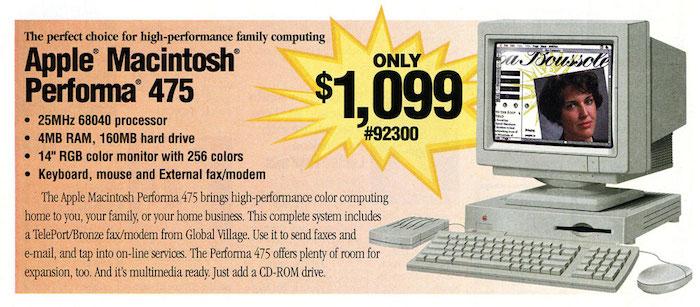

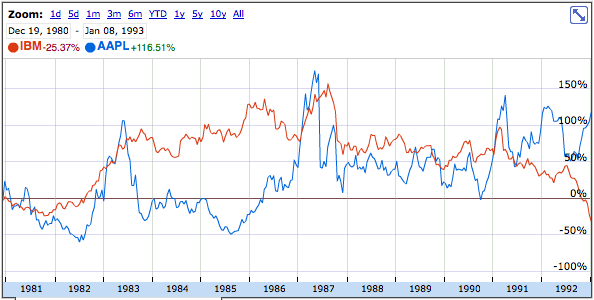
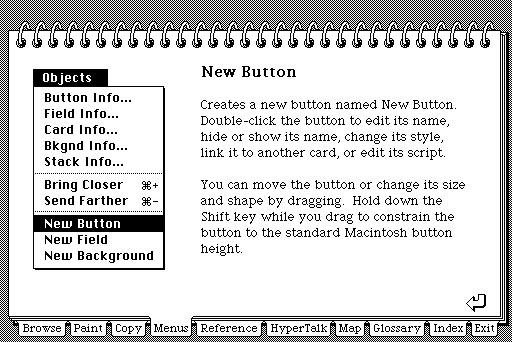
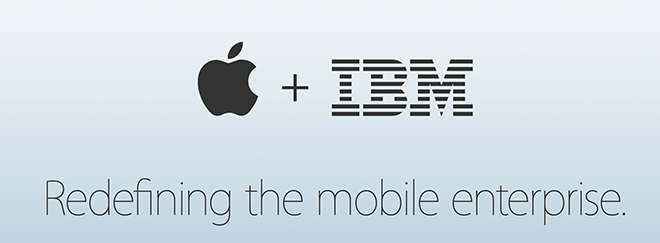
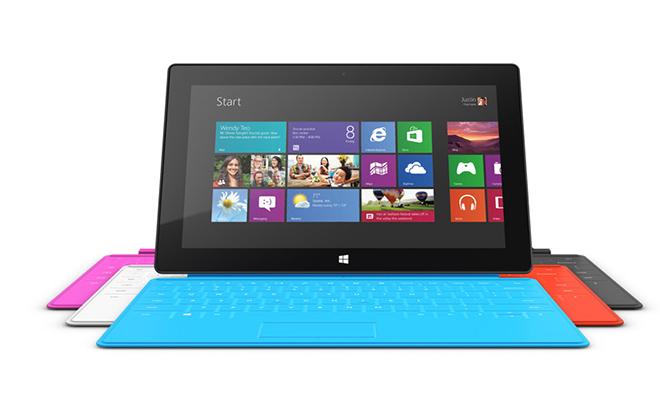







-m.jpg)






 Andrew Orr
Andrew Orr
 Wesley Hilliard
Wesley Hilliard

 Oliver Haslam
Oliver Haslam
 Christine McKee
Christine McKee
 Amber Neely
Amber Neely










130 Comments
I can sum this editorial up in one word. Brilliant! It's going to fun to sit back and watch this all play out.
Don't forget to sell your Google stock first (if you had any).
It's Volkswagen not Volkswagon (if you are talking about the car company), sorry!
On reading the headline, I was extremely skeptical of the article (Google is like 90s Apple? Surely not). I am still not convinced, but DED makes some really good points. The massive issue for Google is that its entire operations are bankrolled by web ads. These can be vulnerable to several fronts: 1) Monopoly accusations like those faced by MS. 2) Increased regulations preventing them from capturing as much user data. 3) Customers shifting to no -Google search due to privacy concerns (DuckDuckGo) or because browsers replacing Google search with alternates. 4) A new revolutionary competitor who slowly erodes Google's lead 5) Apple and MS eliminating the need for Google searches through better and more prevalent apps. While I don't think any of these are likely, the point is that Google as a business has a Death Star like single point of failure. One which may be attacked by the natural and ongoing desktop to mobile transition even if none of the revolutionary scenarios above come into play. That being said, Larry Page is a smart guy and I am sure aware of this issue. Google must be actively involved in fighting this off.
Nice work DED. I do hope the lessons Apple learnt back in the 90's stay learnt and don't resurface. Only time will tell.